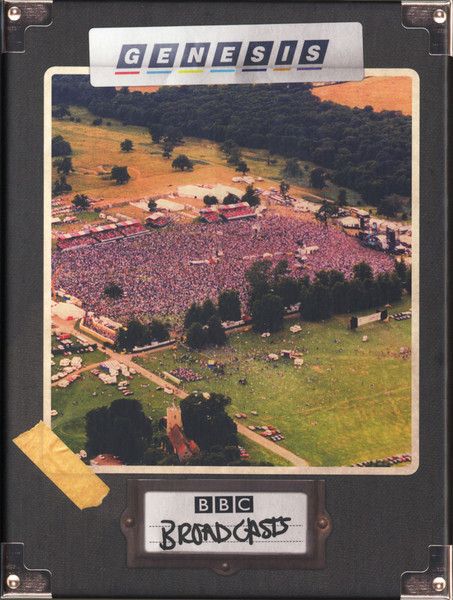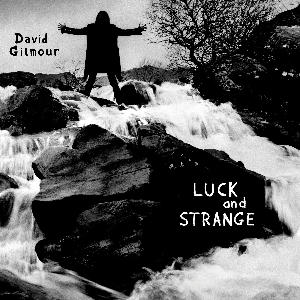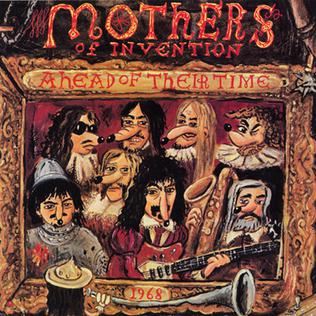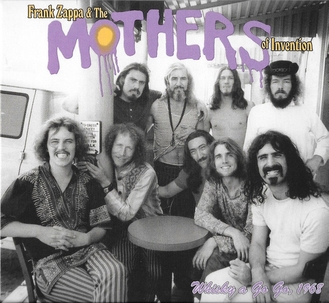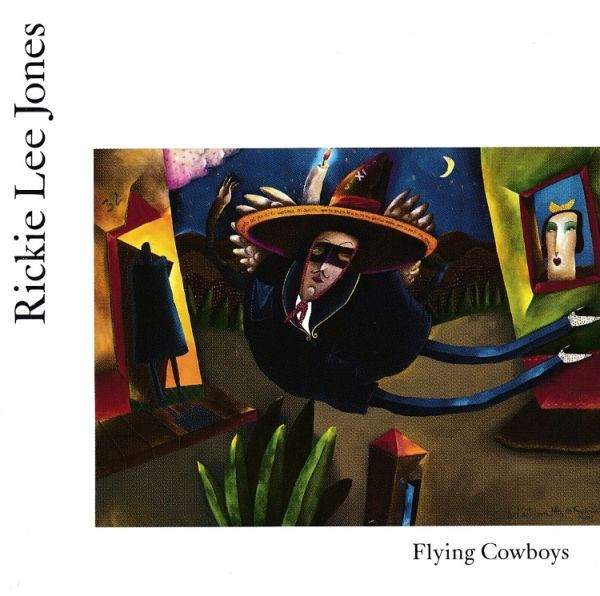 At least it only took the Neil Young Archives team a little under four years after the release of the second box to put out the third. Perhaps in an attempt to dwarf quality with quantity, Archives Vol. III covered the widest period yet—eleven years—on 17 CDs, with five Blu-ray discs containing eleven films in the deluxe edition. Granted, that means the ten or so albums released in that period are represented here, and usually liberally, with more of an emphasis on the first recorded and/or performed versions of songs among the previously unreleased selections. Also, various “raps” pop up on the discs, these being more or less contemporary snippets of Neil explaining things to put the recordings in context. As the other two boxes didn’t have these, they’re unnecessary. (Also, the customary book of photos and credits doesn’t include a tape log, a maddening exclusion to us curmudgeonly chroniclers, and the page numbers are pretty screwy.)
At least it only took the Neil Young Archives team a little under four years after the release of the second box to put out the third. Perhaps in an attempt to dwarf quality with quantity, Archives Vol. III covered the widest period yet—eleven years—on 17 CDs, with five Blu-ray discs containing eleven films in the deluxe edition. Granted, that means the ten or so albums released in that period are represented here, and usually liberally, with more of an emphasis on the first recorded and/or performed versions of songs among the previously unreleased selections. Also, various “raps” pop up on the discs, these being more or less contemporary snippets of Neil explaining things to put the recordings in context. As the other two boxes didn’t have these, they’re unnecessary. (Also, the customary book of photos and credits doesn’t include a tape log, a maddening exclusion to us curmudgeonly chroniclers, and the page numbers are pretty screwy.) The first two discs are collectively titled Across The Water and basically expand on the Odeon Budokan disc of the second box, even overlapping chronologically with it and including alternate mixes of two of its tracks. There’s some repetition of songs already available in excellent takes on Songs For Judy, but we are assured that these are different performances. The acoustic tunes aren’t any great improvements over other versions, but when Crazy Horse plugs in, we get unique runs at “Country Home”, “The Losing End”, a sloppy “Homegrown”, and a lengthy “Southern Man”. We also get two versions of “Cortez The Killer”, for no apparent reason other than that they were recorded 20 days and two continents apart. (Across The Water is also one of the Blu-ray offerings, a concert film with color footage from Japan, and black-and-white footage on and offstage from the UK. The viewer can now determine whether Poncho and Billy were indeed tripping onstage, as the former has insisted.)
The other boxes were criticized for including previously released Archives titles, such as Fillmore East and Homegrown, because people don’t like buying things twice. This set sidesteps that thorny issue, sort of, by combining selections from Hitchhiker and Songs For Judy on a disc called—what else?—Hitchhikin’ Judy. His two songs from the Band’s Last Waltz show plus “Will To Love” (the album version, not the unadorned original) and “Lost In Space” on piano—with Ron Wood on acoustic guitar—round out the disc. (While selections do appear throughout the box, the Chrome Dreams album is not duplicated as one of the discs either.)
After the alternate take of “Hold Back The Tears”, Snapshot In Time presents portions of a cassette recorded at Linda Ronstadt’s kitchen table, going through some mostly unreleased songs while she and Nicolette Larson extemporaneously harmonize. Some of these would be recorded for American Stars ‘N Bars and Comes A Time; one of the more interesting moments is when “Peace Of Mind” segues into “Sweet Lara Larue”, an update of “Come Along And Say You Will”. The standard “Hey Babe” precedes—finally—the first official release of “Barefoot Floors”, which was a glaring omission in Vol. II. If we are to take the preceding rap at his word, it’s a recording of them listening to the song in a car.
Windward Passage is a 35-minute condensation of the official Ducks bootleg, plus unique versions of “Sail Away” and “Cryin’ Eyes”. We get some of the other guys’ tunes as well as Neil’s, so the selection is very curious. And brief. Did this really need its own dedicated disc? Well, he warned us.
Despite its cover art, Oceanside Countryside does not present the unreleased first draft of the album that would eventually morph into Comes A Time. For one thing, the selections are sequenced in strict recorded order. At any rate, there are some nice stripped-back mixes of Comes A Time songs, plus the familiar “Pocahontas” and “Lost In Space”, unreleased takes of “It Might Have Been” and “Dance Dance Dance”, a rightfully rejected “Comes A Time”, and a mix of “Peace Of Mind” with a lost verse. (The album itself would eventually get an official release, including eight of the songs on this disc.)
The sessions to complete Comes A Time—which also included outtakes of “We’re Having Some Fun Now”, an unreleased version of “Love/Art Blues”, and a cover of the oldie “Please Help Me, I’m Falling”—bookend a one-off benefit performance performed by Neil with Nicolette, the session players, and the Gone With The Wind Orchestra. That show is not in the box, but the rehearsal for it makes up the bulk of the Union Hall disc. It’s a mix of old and new songs, including a pointed medley of “Dance Dance Dance” and “Love Is A Rose”, a strings-laden “Alabama” with a “Sweet Home Alabama” tag, and the mega-rare “Lady Wingshot”.
The double-disc Boarding House presents recordings for what would become side one of Rust Never Sleeps. The alternates aren’t better than what he chose to release then, but it’s a striking acoustic journey, with the first versions of “Shots” and “The Ways Of Love”, and “Out Of My Mind” on piano is particularly striking. There is some sloppy editing; his announcement of “Sugar Mountain” appears about seven songs before he plays it, and he talks about going “way back” in time before a splice into “Comes A Time”, which wouldn’t be out for another five months. Meanwhile, in the middle of the shows he spent an afternoon jamming with Devo, recording the odd version of “Hey Hey, My My (Into The Black)”, sung by Booji Boy, used in the Human Highway movie (also included on the Blu-rays), and which opens the second disc. Why not push the Devo track onto the next, still short disc so Boarding House could stay under 80 minutes and fit onto one? (The Boarding House film on the Blu-rays presents one of the shows in full.)
Instead, the 49-minute Sedan Delivery disc begins with a studio take of “Bright Sunny Day” with Crazy Horse, but the rest consists of side two of Rust Never Sleeps assorted with tracks from Live Rust, rather than any alternate performances or song selections. (For one, “Come On Baby Let’s Go Downtown” was played every night, and not included here. That said, both the new Boarding House film and a restored Rust Never Sleeps film are included on the Blu-rays.) Yes, the tracks chosen are presented in chronological order, recorded from four different concerts, but there’s no flow to the disc, save for ending with “Hey Hey, My My”.
Once we get into the ‘80s, the discs focus on contrasts. Coastline offers side two of Hawks & Doves, plus the “Winter Winds” outtake, then a smattering from Re-ac-tor. There’s no “T-Bone”—at 38 minutes, there’s room on the disc—but we do get an early “Sunny Inside” (why didn’t he play this with when he toured with Booker T and the MG’s?) and the otherwise unheard “Get Up”, an odd-metered tune that predicts the next album.
After the Vocoder tracks recorded alone and with Crazy Horse, Trans/Johnny’s Island offers more songs by the band initially dubbed Royal Pineapples but eventually just called The Trans Band, eschewing most of the ones they did for the album for unreleased songs and versions. The influence of Hawaii is more prominent, or maybe that’s just the constant congas and pedal steel. “If You Got Love”, left off Trans at the last minute, is included, and we weren’t missing much, though “Soul Of A Woman” stomps live and “Love Hotel”—played exactly once—finally gets an airing. The early version of “Silver & Gold” is nice, but it wouldn’t be captured correctly for another 15 or so years. In hindsight, these songs would have meshed well with CSN’s of that era. (This era gets a lot of coverage in the Blu-rays: the Berlin and Solo Trans concert films, and a new animated film by Micah Nelson, once of Promise Of The Real and occasionally Crazy Horse, to accompany the Trans Vocoder tracks.)
Evolution tackles the first Old Ways sessions and Everybody’s Rockin’ detour, beginning with live “gitjo” performances of “California Sunset” and “My Boy”. Back on his own, he used the Synclavier and drum machines for early versions of “I Got A Problem”, “Hard Luck Stories”, and “Razor Love”, the latter of which also wouldn’t be recorded right for another 15 years. “Your Love” isn’t bad, mostly because it’s simple and not attempting to sound too modern, and there’s another stab at “If You Got Love” that’s not awful.
Around the time that Geffen sued him for making records that didn’t sound like Neil Young, he hooked up briefly with Crazy Horse—plus Ben Keith tooting along on sax occasionally—to play four sets at their usual haunt, the Catalyst in Santa Cruz. Touch The Night presents most of the last show, which features songs that would emerge without the Horse on Landing On Water (including the 11-minute “title track”), another “Your Love”, the unreleased piledrivers “Rock” and “So Tired”, plus “Barstool Blues” and “Welfare Mothers” to please the crowd. (The sound is muddy as befits a cassette source; the video feed is on one of the Blu-rays as Catalyst.)
But then he was back to playing country music with a vengeance and the International Harvesters, which is the focus of Grey Riders. This era was already well-covered on A Treasure; in addition to seven songs from that set, there are a few alternate versions, like a rockin’, rearranged “Misfits” (now subtitled “Dakota”, and performed with a brief detour called Crazy Harvesters), plus an early “This Old House”, “Time Off For Good Behavior”, and finally “Interstate”, but not the previously bootlegged version. (It should be noted that not a single track is duplicated from the official Old Ways, which says something about Neil’s own estimation of it. Also, the video content on the now-rare Blu-ray version of A Treasure is included on the Blu-rays.)
Road Of Plenty recycles six tracks from Landing On Water, then continues with three rarities from the Rusted Out Garage tour. The “title track” is an early version of what would become “Eldorado”, and the first recorded performances of “We Never Danced” (a studio track on Life) and “When Your Lonely Heart Breaks” are mostly of historic interest. (Oddly, nothing from Life is included anywhere among the CDs, despite there being plenty of room, but the In A Rusted-Out Garage pay-per-view concert film as well as the rarer Muddy Track documentary are among the Blu-ray offerings.)
The final CD in the box is devoted to Summer Songs, an eight-song demo recorded in 1987 and forgotten for decades, then uploaded to the Archives site for streaming on Christmas Day in 2021 in a different order than presented here. Beginning with a superior “American Dream” he runs through songs that would end up on three future albums. “Someday” and “Wrecking Ball” have slightly different lyrics, and “Hangin’ On A Limb” could well be the unadorned track we already know. “For The Love Of Man” wouldn’t make an album for a quarter-century, while “Last Of His Kind” would be played live that year and thereafter saved mostly for Farm Aid appearances. At 38 minutes it’s another short disc, but apparently that was all he had in the tank that day. (We recommend inserting “This Old House” and “Feel Your Love” into the sequence to fill it out.)
Were we in charge of things—and obviously we’re not, despite having repeatedly offering our proofreading and organizing skills—Vol. II would have ended in 1978, but that would have stretched that set to 20 discs (not counting Blu-rays). But then, arguably, what was left wouldn’t have been as strong or exciting. At the very least, the Across The Water discs could have been in there, in place of Odeon Budokan, which would then be saved as the standalone Special Release Series volume it became anyway, and with a better cover. Hitchhiker and Songs For Judy would have sat between the boxes alongside Chrome Dreams, shaving the first three discs out of this one. (There is plenty of room in Vol. II for the last four songs on the Hitchhikin’ Judy disc, which would have brought that box neatly to the end of 1976.) What’s more, plenty is left out, particularly from the International Harvesters era (“Leaving The Top 40 Behind”, “Silver & Gold”, “Beautiful Bluebird”, “Your Love Again”). And still no “Evening Coconut”?
The fact of the matter is that the 14 hours of music in Archives Vol. III runs the gamut from the sublime to the ridiculous, as his journey was affected by changes in the industry as well as with technology and his personal life. As it is, it’s a daunting collection of music that at least follows his original stated intention of releasing everything, good and bad. And hearing things in context does fill out the picture in ways that the albums as originally released couldn’t. But we didn’t expect to be blown away to the extent we were with the first two boxes, and we weren’t.
Footnote: the box was preceded by a promo disc called Archives Vol. III Takes, which offered a song each from 16 of the 17 discs in the set. As a sampler it’s alternately entertaining and frustrating; while it was a treat to hear “Lady Wingshot”, “Winter Winds”, and “If You Got Love” in decent quality, “Bright Sunny Day” and “Razor Love” were frankly underwhelming and the live versions not that unique. Plus, “Hitchhiker” came from the Hitchhikin’ Judy disc, which consisted of previously released material. Therefore, it accurately previewed the set as a whole.
Neil Young Archives Vol. III: 1976-1987 (2024)—3


